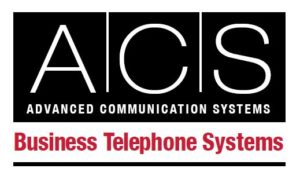 We all can agree that communication is the key to success. If your business can’t communicate seamlessly with your customers and staff, your business will suffer the pitfalls. Selecting an office business phone isn’t a decision to take lightly; if you are experiencing problems with your hardware (such as dropped calls) or don’t have mobile or Internet features, you may need to invest in a virtual phone system.
We all can agree that communication is the key to success. If your business can’t communicate seamlessly with your customers and staff, your business will suffer the pitfalls. Selecting an office business phone isn’t a decision to take lightly; if you are experiencing problems with your hardware (such as dropped calls) or don’t have mobile or Internet features, you may need to invest in a virtual phone system.
Virtual phone system is shorthand for virtual private branch exchange (VPBX). They are designed for companies that require a plethora of calling and messaging services (call routing, extensions, fax, voicemail, etc.). The biggest difference between VPBX and traditional phone systems is the lack of clunky hardware. As the name suggests, VPBX’s are virtual. They can operate with your current phones, whether hard line or mobile.
Even though all of this sounds fancy and technical, a lot of VPBX business phone systems are designed with small business’s in mind in order to reduce their costs.
VoIP or VPBX?
Voice over Internet Protocol (VoIP) is a popular alternative to traditional phone systems, led by apps like Skype. VoIP makes calls over the Internet, instead of over the Public Switched Telephone Network (PSTN), which is the system the bulk of traditional phones utilize.
VoIP may be less expensive, but this cost reduction doesn’t take into account the broadband Internet connection it requires. VPBX systems, on the other hand use the PSTN.
What to consider when choosing a VPBX system
Here are five things to consider when deciding if a VPBX system is right for your business.
- Business Type/Size
All businesses are different. If your business phone system doesn’t cater to your style, it won’t work. Fortunately, no matter what type of business you are, there are programs and options for you. For example, Nextiva works great for small businesses, where as larger companies should go for something like Virtual PBX or RingCentral.
- Simplicity
When you are trying to run a business, you don’t want to have to wade through complicated interfaces and confusing technical details. If the phone system isn’t easy to use (i.e. you can make calls and run your business smoothly without getting irritated), it probably won’t work for your business.
- Extensions
If your business has multiple departments within the company, you need a system that offers extensions. If your phone system doesn’t offer flexible extensions, your customers will get annoyed every time they call. Not only do you want a streamlined experience, so do your customers.
- Disaster Recovery
One of the best things about VPBX’s is their ability to allow your business to stay functional in the event of a disaster. In the event of a worst case scenario a routing plan can be set up in advance so that your VPBX can be rerouted to your home or mobile numbers.
- Customer Service
When choosing a company to host your VPBX, you should consider how easy it is to get in touch with them. If you are new to these systems, companies like Nextiva are a good choice, because they pride themselves on their concrete relationships with their customers and always having representatives at the ready to assist you.
